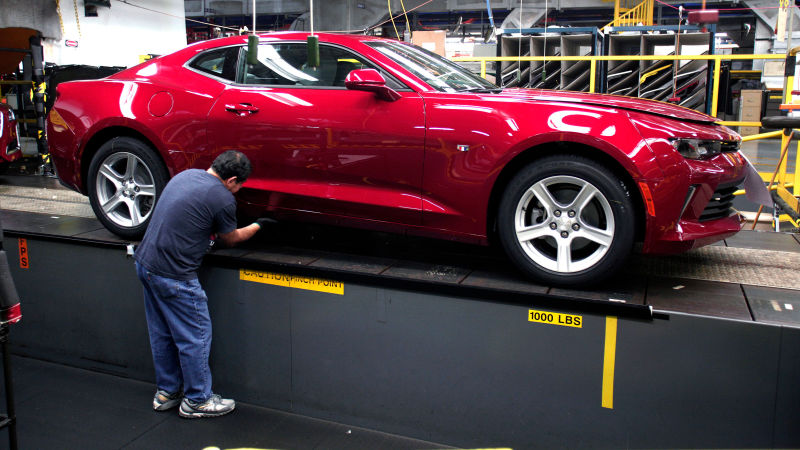
Following multiple automakers’ negative reaction in response to President Trump’s proposed increase of automotive import tariffs, General Motors and Mazda have separately encouraged the Department of Commerce to reject Trump’s proposal.
Last month, President Trump ordered the Department of Commerce to launch an investigation into the impact of imported cars and car parts to determine if they pose a threat to national security, surely because Miatas strike fear in the hearts of their enemies.
In statements published today in response to the Commerce Department’s investigation, both Mazda and General Motors have essentially said as much.
Mazda, on behalf of its 32,000 American employees, warned that the 25 percent tariff that may result from the government’s investigation “is a tax and it will be paid by American consumers,” and that it “will significantly increase the cost of every new vehicle sold in America, regardless of where it is built.”
General Motors warned of even more extensive repercussions it may face with the new tariff, via Automotive News:
“If import tariffs on automobiles are not tailored to specifically advance the objectives of the economic and national security goals of the United States, increased import tariffs could lead to a smaller GM, a reduced presence at home and abroad for this iconic American company, and risk less — not more — U.S. jobs,” GM said.
Advertisement
GM also warned that the tariffs could undermine its competitiveness against foreign automakers in foreign markets, and could lead to “negative consequences for our company and U.S. economic security.”
The statement continued:
“Alternatively, if prices are not increased and we opt to bear the burden of tariffs or plant moves, this could still lead to less investment, fewer jobs, and lower wages for our employees. The carry-on effect of less investment and a smaller workforce could delay breakthrough technologies and threaten U.S. leadership in the next generation of automotive technology,” GM said.
Advertisement
Earlier this week, Toyota also made a bold statement, claiming its 137,000 U.S. workforce was not a national security threat, and warning that the cost of its American-made Camry sedan would increase by at least $1,800.
The investigation follows Trump’s recently imposed tariffs on steel and aluminum, which already threaten to increase the cost of automotive manufacturing and increase vehicle prices for consumers.
The Department of Commerce has 270 days to complete its investigation from the start date, followed by a 90-day period for the President to determine if the findings are agreeable before deciding on whether or not take action.













